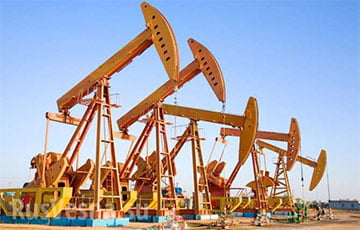Bloomberg: An Oil Storm Is Brewing, And Russia Is At The Center Of The Impact
9- 1.05.2025, 20:17
- 25,882

Saudi Arabia crashed oil below $60.
Brent crude oil has broken through the psychological mark of $60 per barrel. For Russia, whose economy rests on a hydrocarbon needle, this is not just bad news - it is a harbinger of disaster. Prices continue to fall, and traders are warning: Saudi Arabia has decided to stage a long price massacre, and Moscow will be among the first victims, dialog.ua citing Bloomberg.
Brent below $60 - the fall continues
The price of July Brent crude futures fell to $59.44 a barrel on May 1, 2025, according to the London-based ICE exchange. This is the first major downward breakout in three weeks. The last time Brent crude traded below $60 was April 9, and now it is clear: the trend is consolidating.
Saudi Arabia breaks the market
The reason for the collapse is the position of Riyadh, which has made it clear: no production cuts, even if prices continue to fall. Saudi Arabia is ready to live with cheap oil in order to punish rivals within OPEC+, primarily Iraq and Kazakhstan, who violated quotas.
The kingdom insists on a radical increase in production. Production may be increased by 411,000 barrels a day in May - triple the planned increase. Traders and analysts surveyed by Bloomberg expect OPEC+ to decide on May 5 at a videoconference to increase supplies even more in June.
Russia's budget collapses
For Russia, falling oil prices mean direct budget losses. The budget is based on a price of $70 per barrel, and the current Brent price is already almost 15% below that level. At the same time, Russia's Urals oil is trading even cheaper - around $50-55 per barrel, which jeopardizes not only current spending, but also all the Kremlin's medium-term budget plans.
Imports will become more expensive and the ruble will collapse
Cheap oil means less export revenue, less currency, and more pressure on the ruble. Against the backdrop of the already announced devaluation scenario (see CMACP forecast), falling oil prices may become a trigger for a new currency crisis, resulting in:
- higher import costs;
- accelerated inflation;
- slowed down industry, dependent on components;
- the population will become even poorer.
Political subtext: the Saudis are playing on Trump's side
Saudi Arabia is clearly considering the geopolitical factor as well. Riyadh is seeking to strengthen relations with Donald Trump, who is once again pressuring OPEC+ to lower fuel prices. At the same time, Trump is trying to bring Iran back into the market, which reinforces Saudi Arabia's desire to clear the market of competitors. Russia, as a country under sanctions and with limited access to Western technology, becomes a convenient target.
The oil storm is beginning, and Russia is at the center of the blow
The drop in oil prices to levels below $60 is not random volatility, but the beginning of a systemic attack on the weak links of the global market. Russia, with its budgetary dependence on oil, is becoming one of the main victims of this price war. And if the collapse continues, Moscow's economic nightmare is just beginning.











